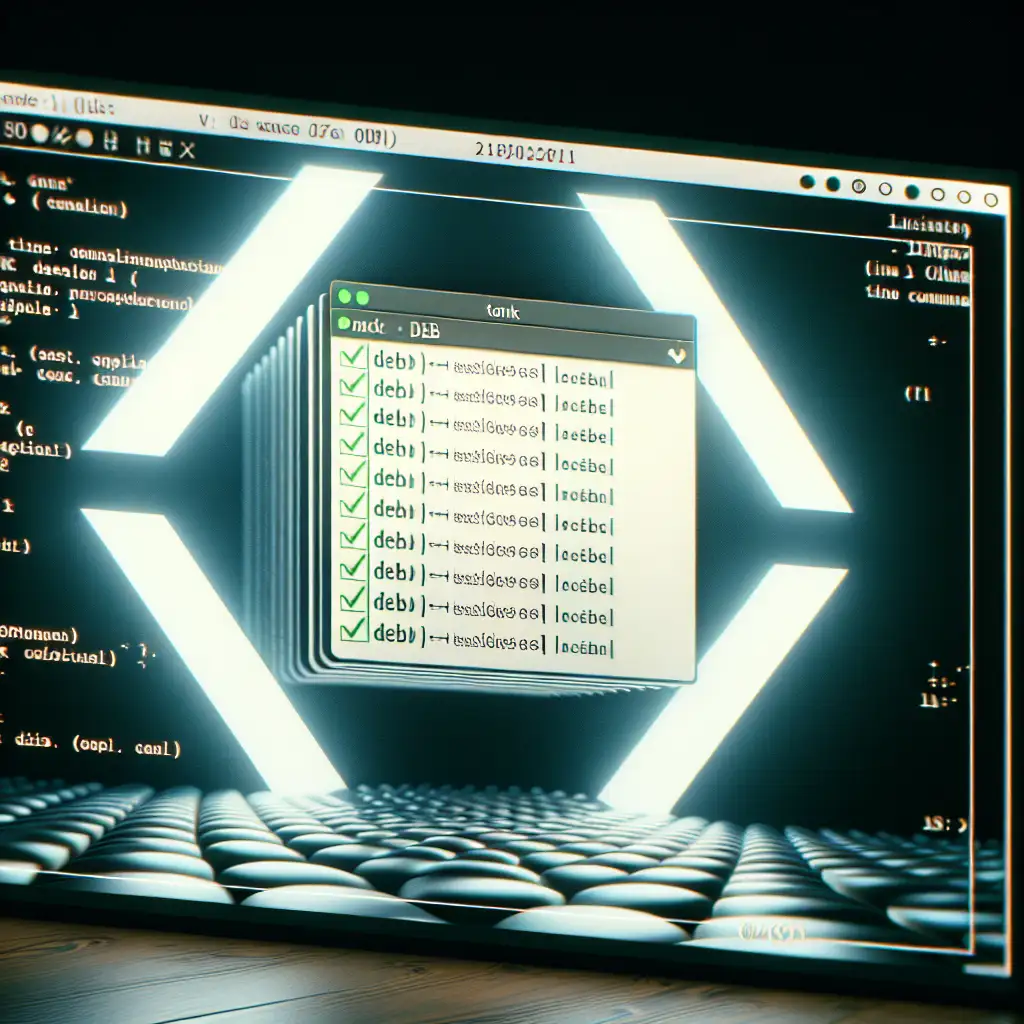How to Run a DEB File Without Breaking Your Linux System
If you’re using a Debian-based Linux distribution—like Ubuntu, Linux Mint, or Pop!_OS—you’ve probably come across .deb files. These Debian package files are a common way to install software outside the official repositories. But running a DEB file isn’t as simple as double-clicking it or blindly using dpkg -i. Doing so without care can result in unmet dependencies, broken packages, or even system instability.
Most guides stop at the basics, but today, I’ll walk you through the correct and safe way to run a DEB file on your system. You’ll learn how to avoid common pitfalls and make sure your software works flawlessly without hurting your system.
Why Handling DEB Files Properly Matters
Unlike installing software via apt from official repos—where dependencies are automatically resolved—installing via .deb files requires extra care. If dependencies aren’t met, your package manager might get stuck in a half-configured state, or worse, system tools may fail.
Step 1: Download the DEB File Safely
Only download .deb files from trusted sources. For example, if you want to install Google Chrome:
wget https://dl.google.com/linux/direct/google-chrome-stable_current_amd64.deb
Or visit the official website and download it via your browser.
Step 2: Inspect the Package Before Installation
Before installing, it's good practice to inspect the package and check what dependencies it declares:
dpkg-deb -I google-chrome-stable_current_amd64.deb
This command lists control info including dependencies.
Step 3: Install Using dpkg (and Fix Dependencies)
The naive approach is:
sudo dpkg -i google-chrome-stable_current_amd64.deb
But dpkg doesn’t resolve dependencies automatically. If dependencies are missing, you will see errors like:
dpkg: error processing package google-chrome-stable (--install):
dependency problems - leaving unconfigured
To fix this:
sudo apt-get install -f
This command tells APT to fix broken dependencies by installing missing packages.
A better combined approach is:
sudo dpkg -i google-chrome-stable_current_amd64.deb && sudo apt-get install -f
This installs the .deb package first and then fixes any missing dependencies.
Step 4: Using apt Directly for Better Dependency Handling (Recommended!)
Instead of manually juggling dpkg and apt-get, modern versions of APT allow you to install .deb files directly while automatically resolving dependencies:
sudo apt install ./google-chrome-stable_current_amd64.deb
Notice the ./ before the filename—this tells apt that you want to install a local file. This method cleverly calls dpkg under the hood then fetches any missing packages if needed.
Step 5: Verifying Installation and Cleanup
After installation, verify that your package is configured properly:
dpkg -l | grep google-chrome-stable
To remove the package cleanly if needed:
sudo apt remove google-chrome-stable
sudo apt autoremove # remove unneeded dependencies
And finally, clean up downloaded DEB files once confirmed installed:
rm google-chrome-stable_current_amd64.deb
Bonus Tips for Advanced Users
- Use GDebi
If you prefer GUI tools or a more automatic installer in CLI that resolves dependencies for.debs usegdebi:
sudo apt install gdebi-core # CLI version; for GUI use just 'gdebi'
sudo gdebi google-chrome-stable_current_amd64.deb
-
Avoid forcing installs with
--force-all.
It's tempting to force install broken packages withdpkg --force-all, but this often leads to system trouble. -
Check existing package conflicts with
apt-cache policy packagename
to ensure no conflicts before installation.
Summary
| Method | Pros | Cons |
|---|---|---|
dpkg -i file.deb + apt-get install -f | Works universally | Two-step process |
apt install ./file.deb | Simple; resolves deps | Requires newer APT versions |
gdebi file.deb | GUI friendly; dependency safe | Extra tool to install |
By understanding these approaches and carefully handling .deb files, you keep your Debian-based system stable while enjoying software outside official repos. Don’t just double-click; run your DEB files like a pro!
Have questions or want me to cover other package formats? Drop a comment below! Happy Linuxing!
